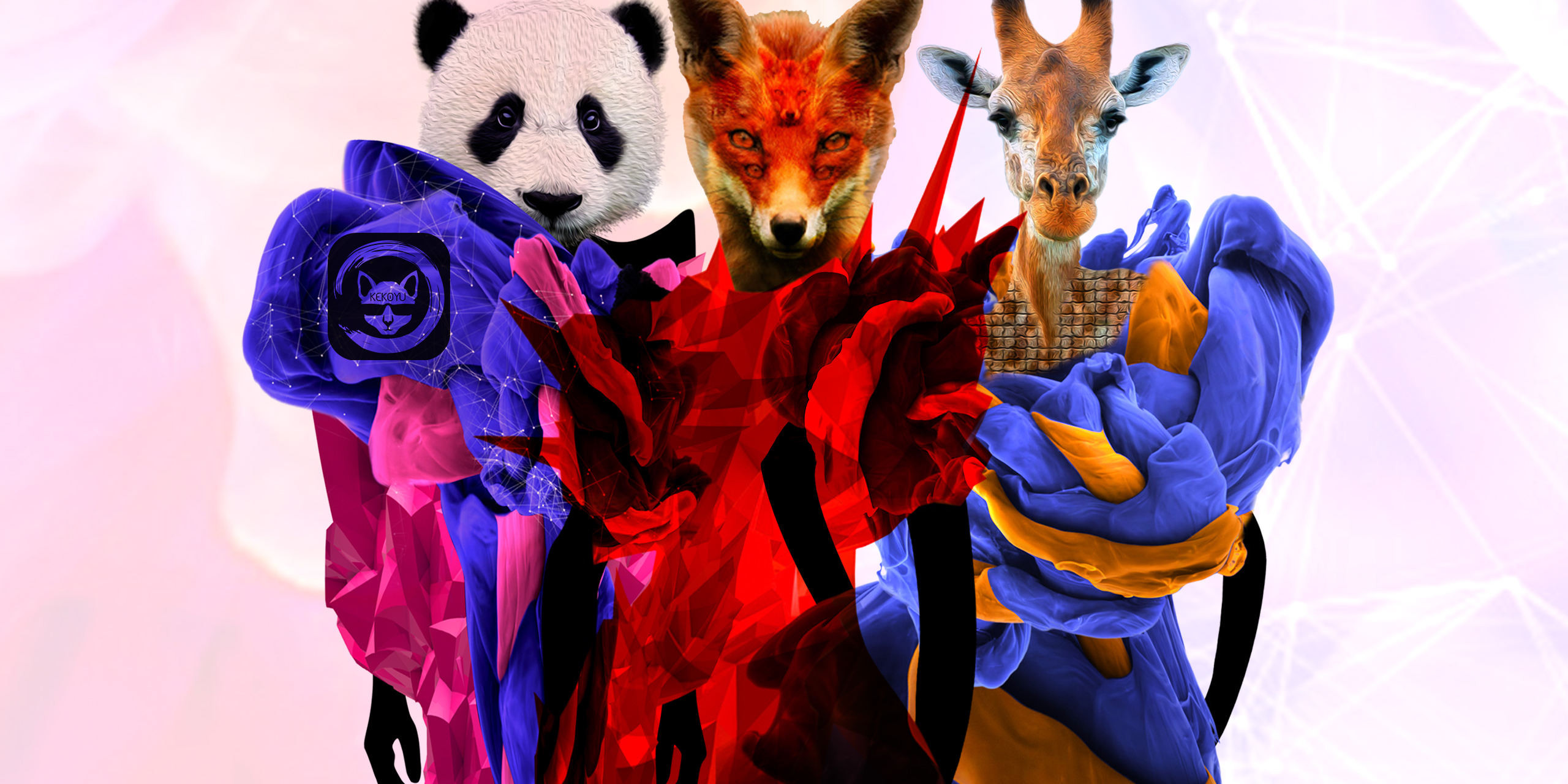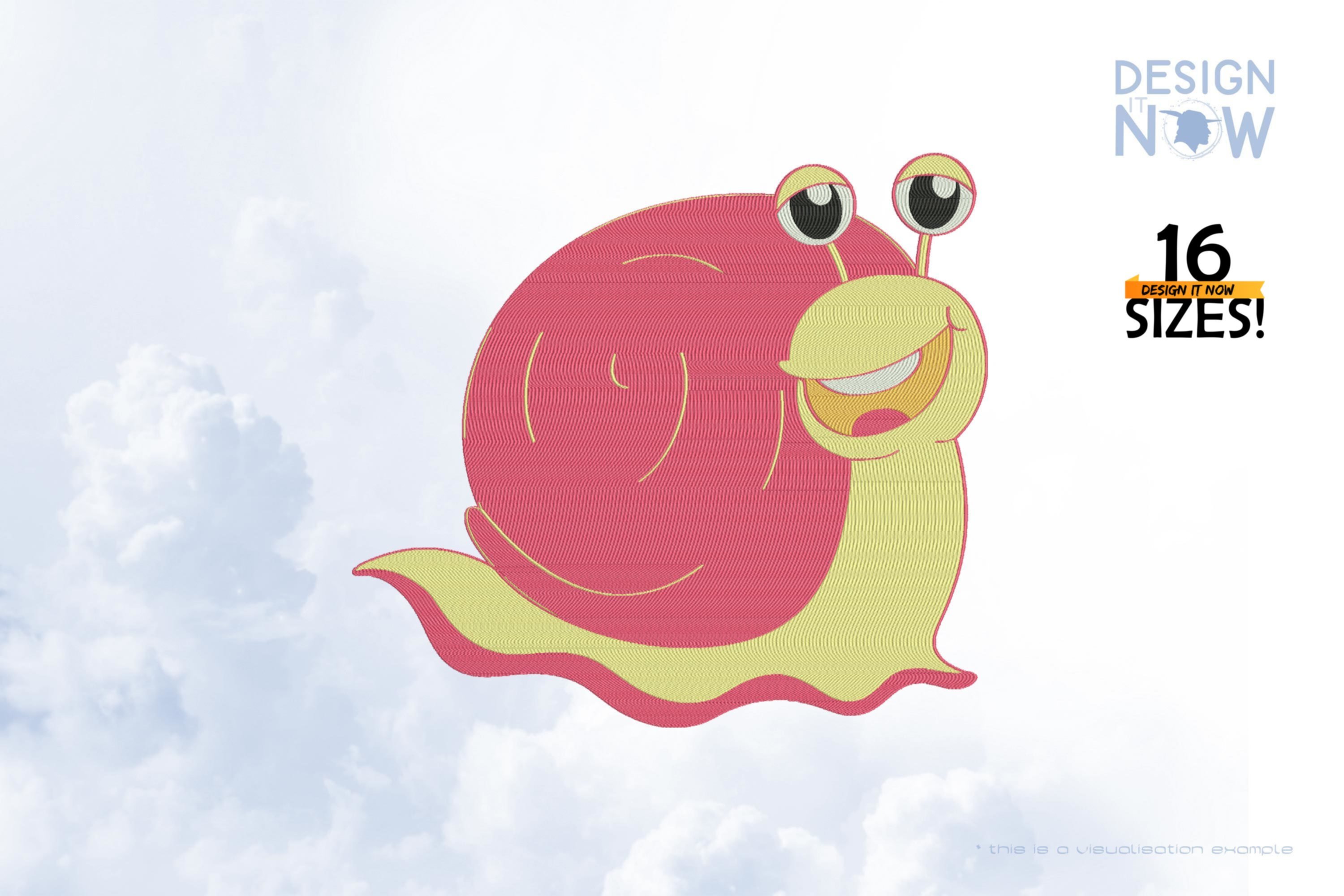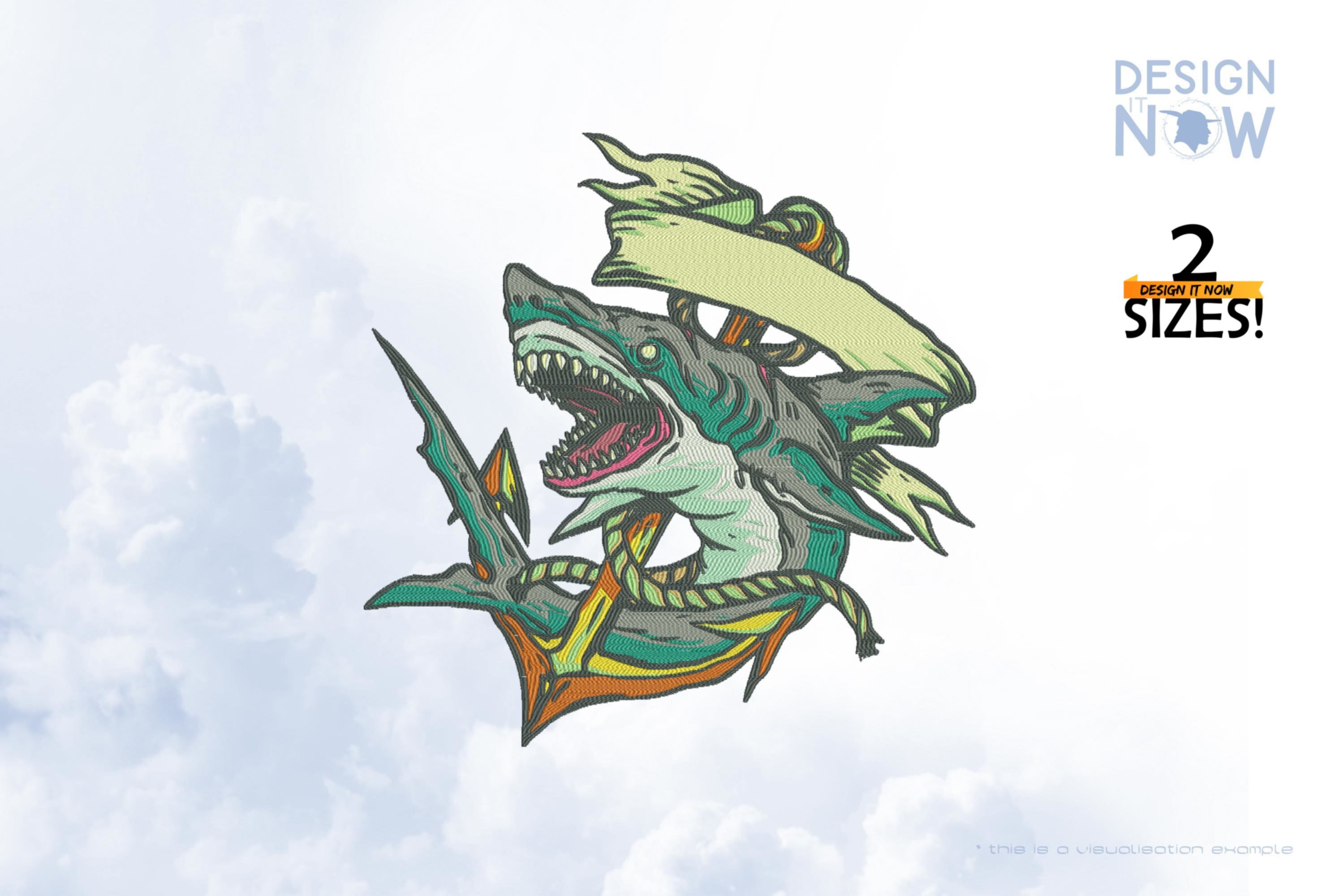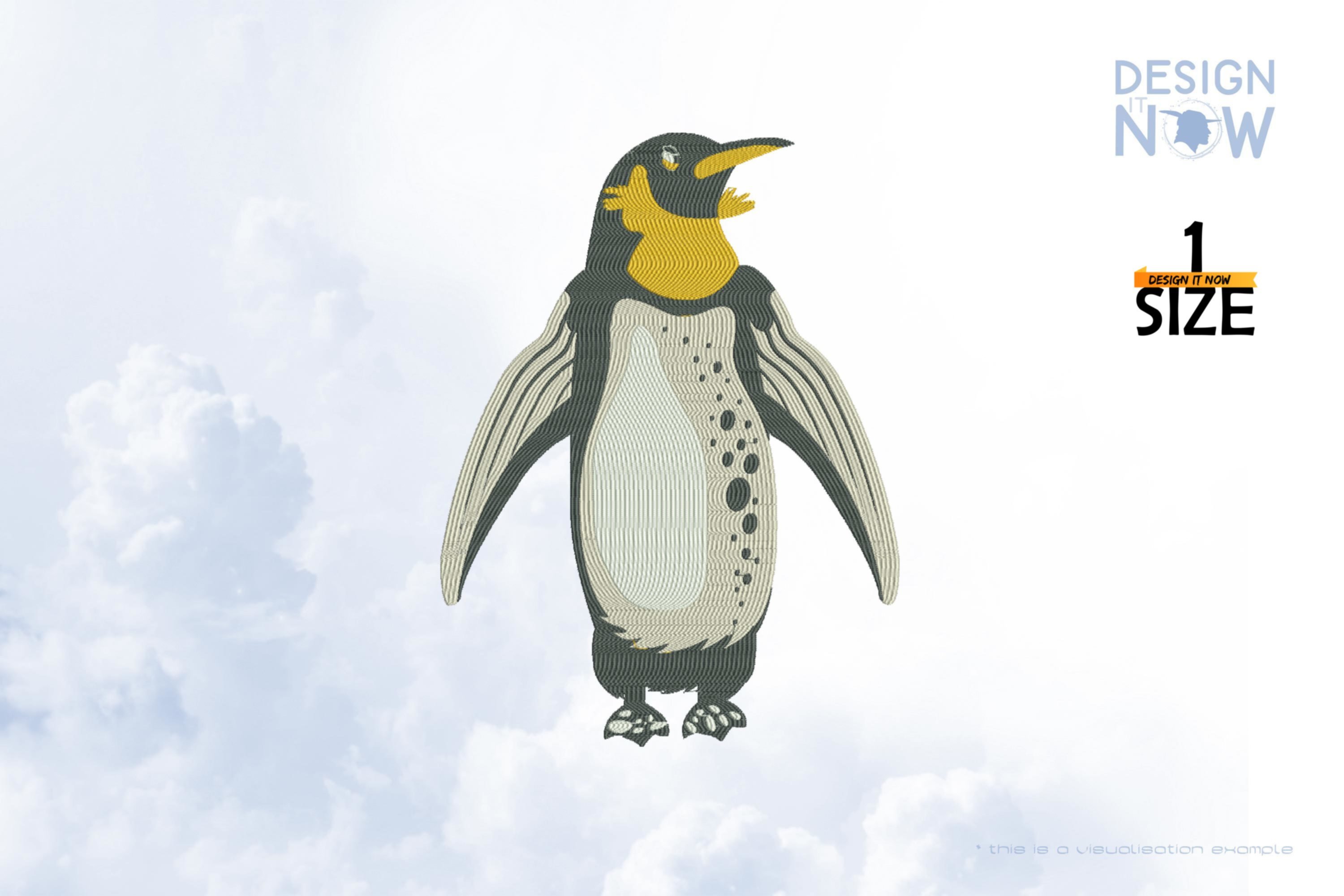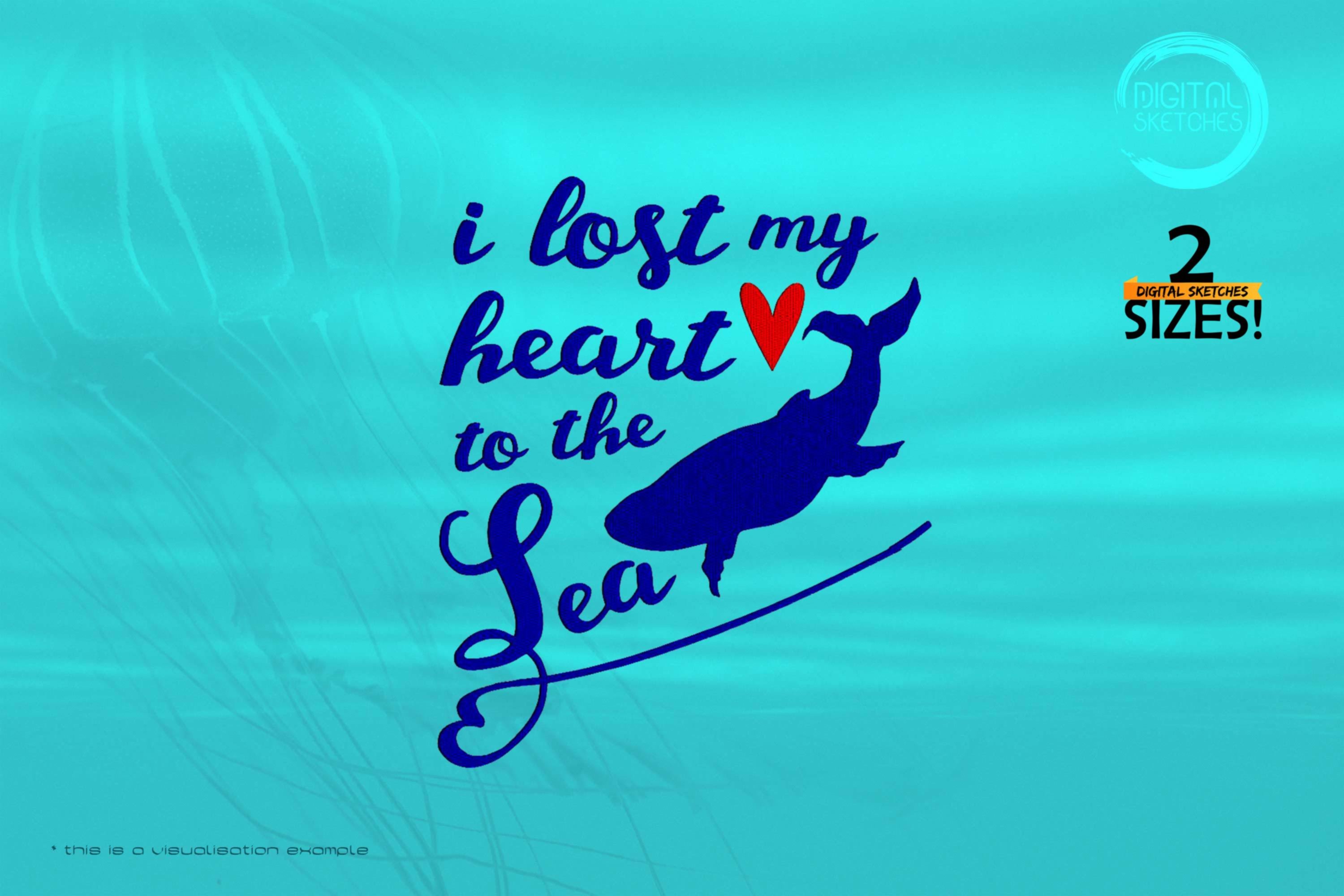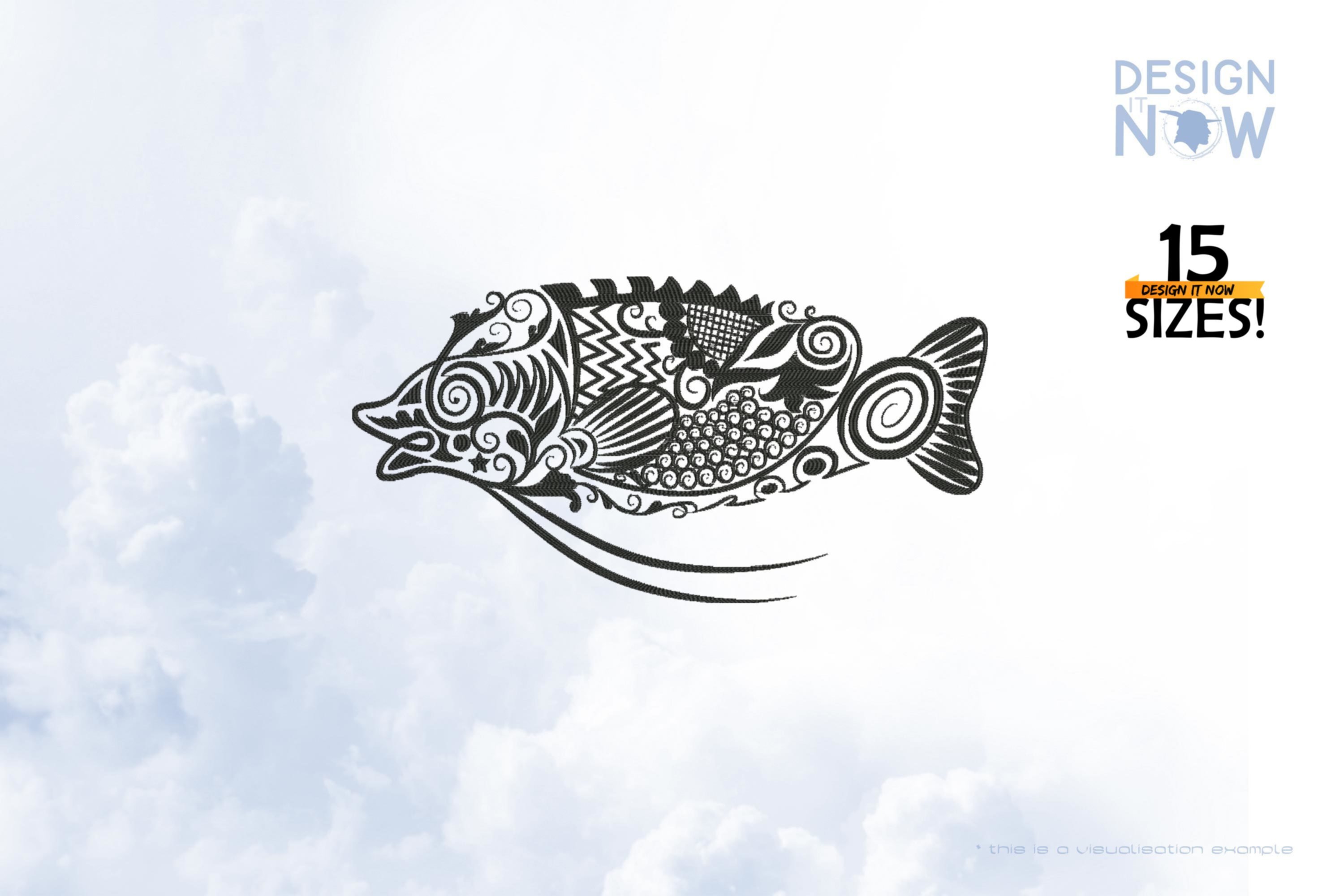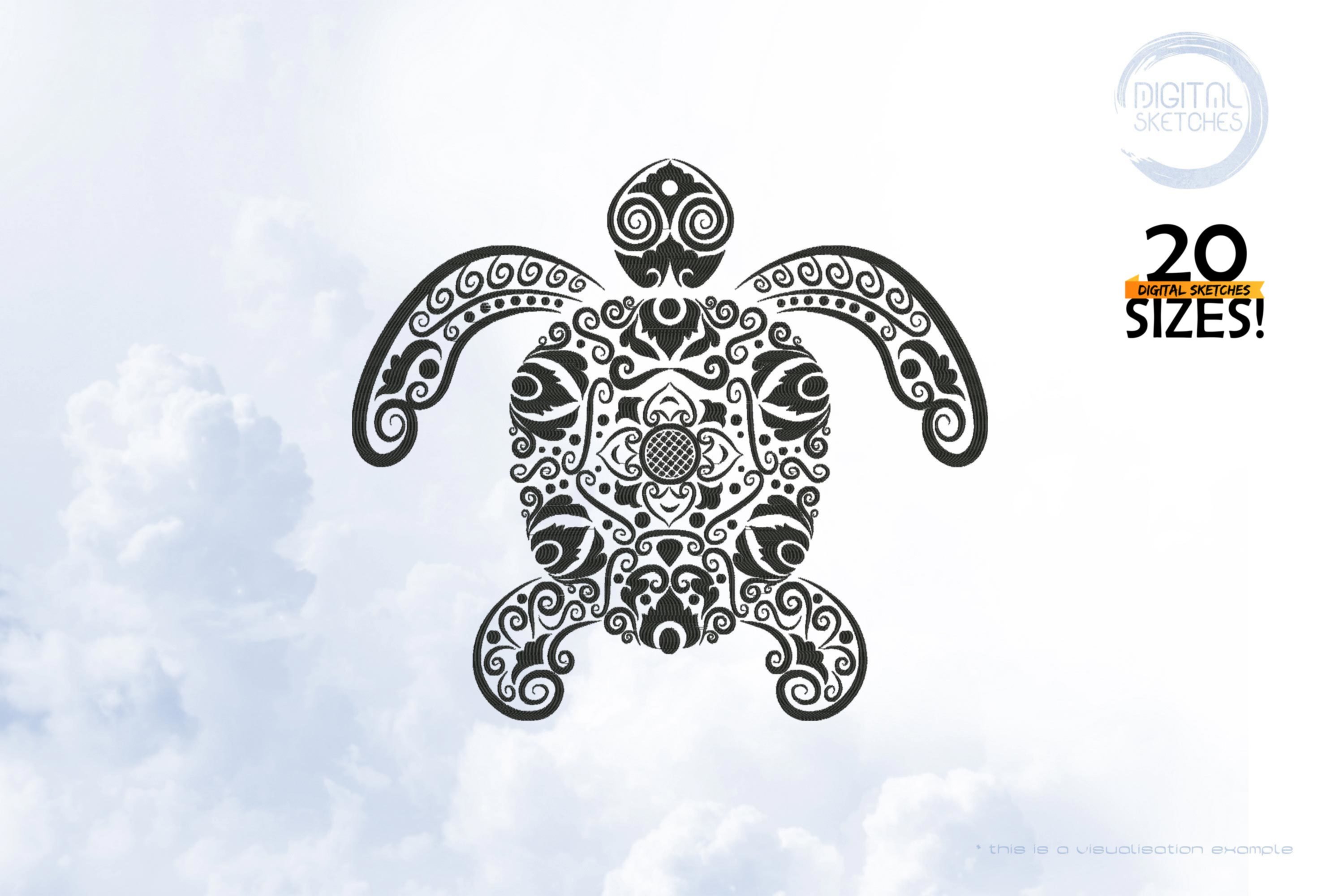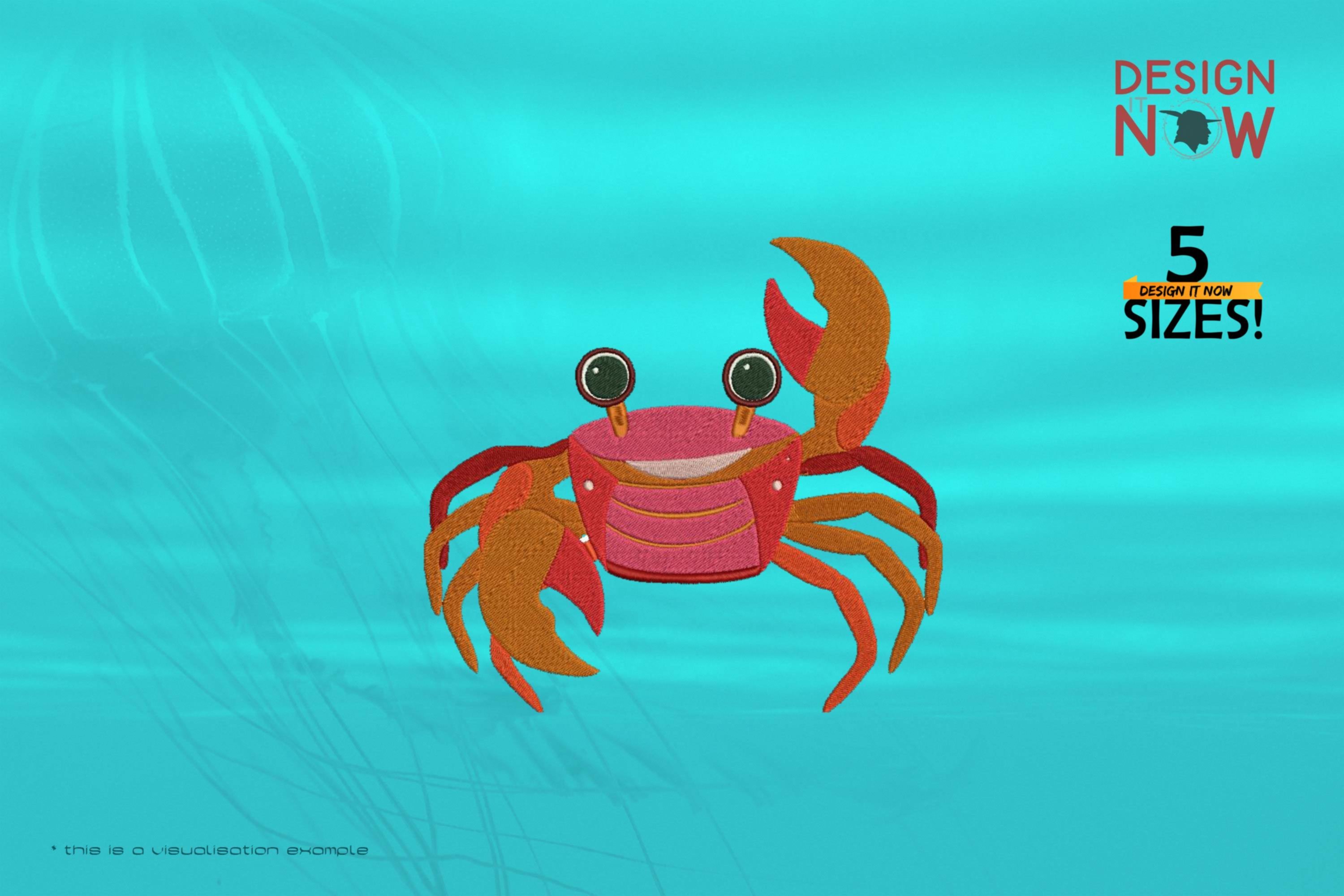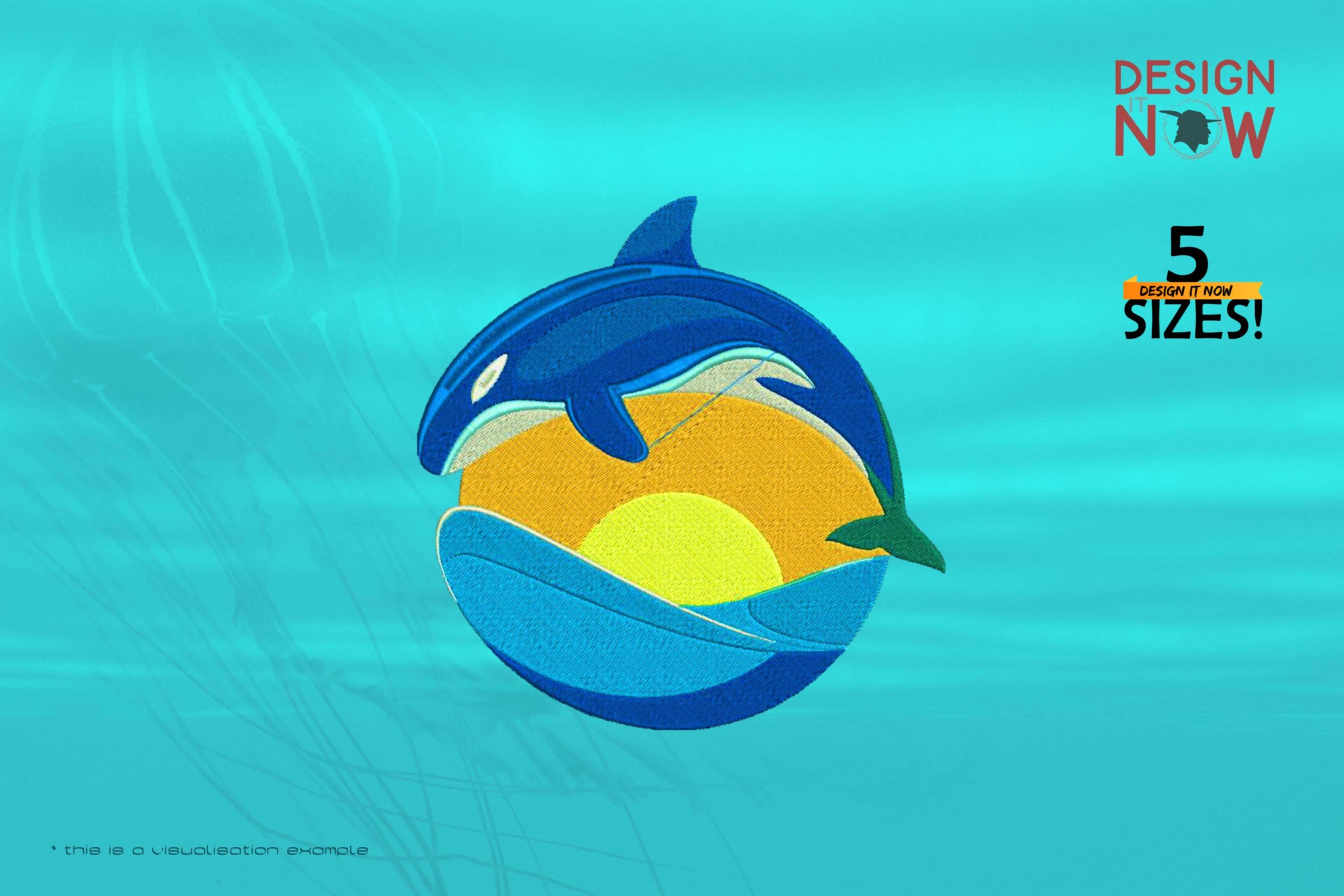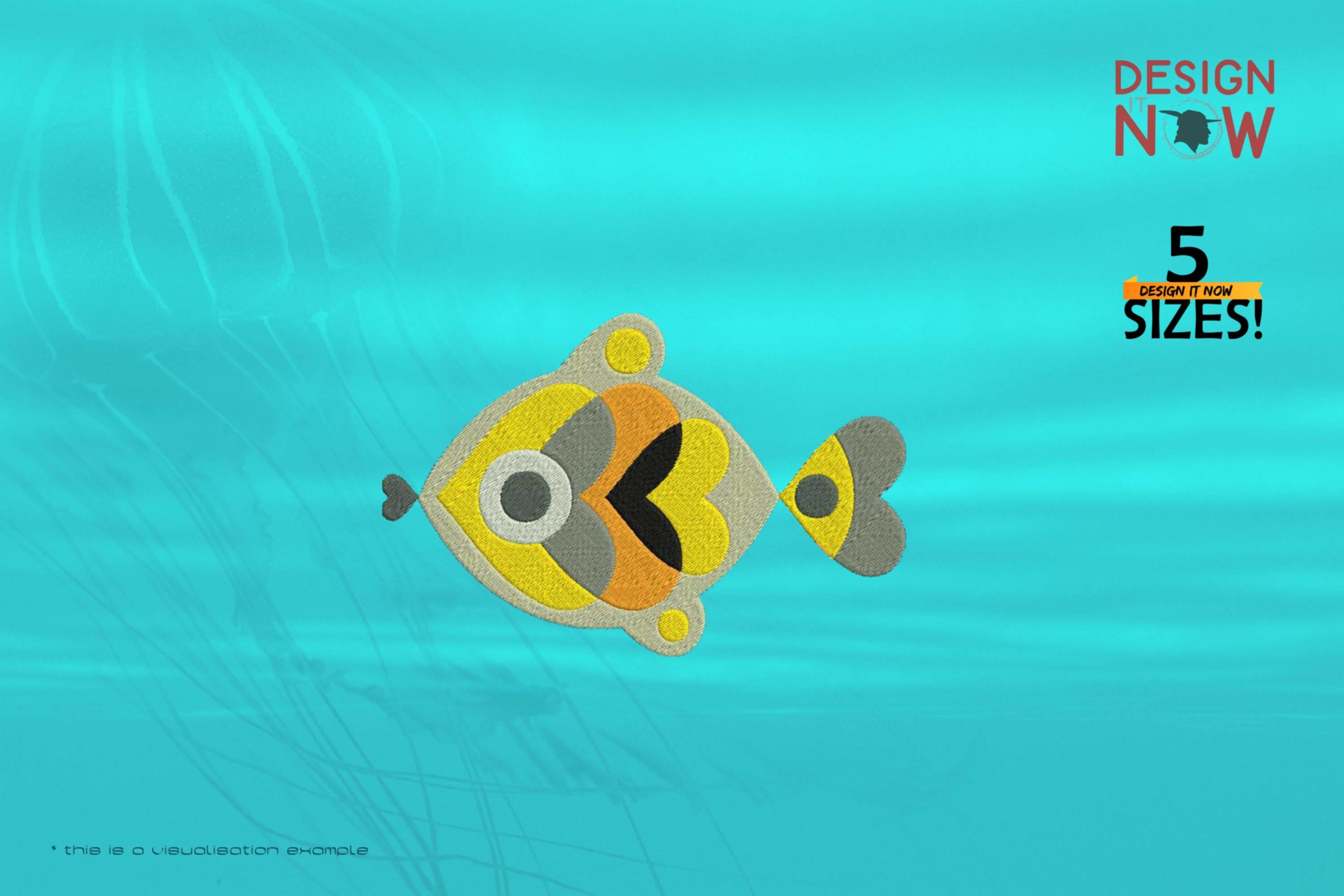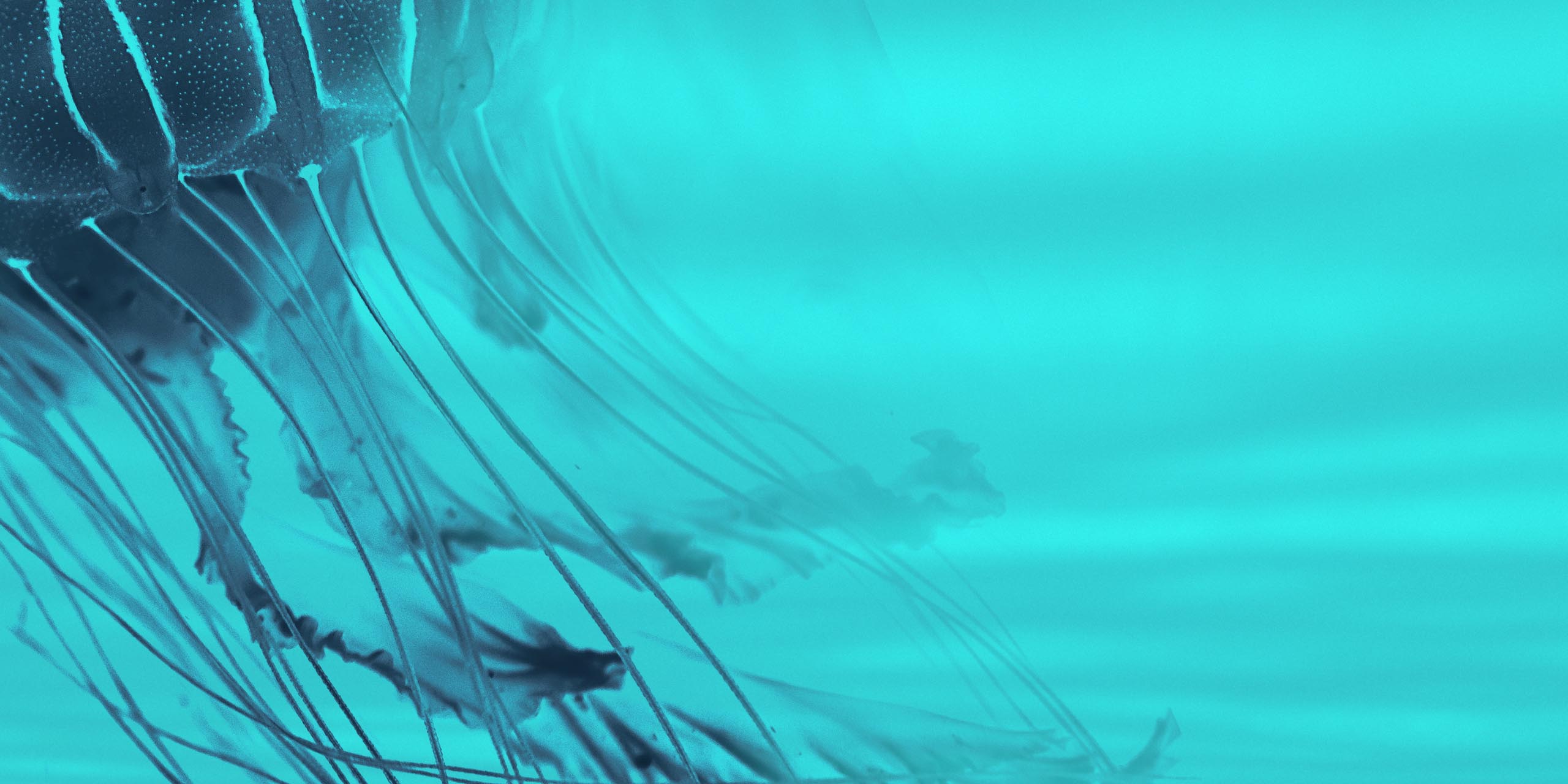
Marine Life
A marine animal is an animal whose main habitat is the marine ecosystem. The term does not designate a natural relationship group (taxon) in the sense of biological systematics, but is a collective term for animals that belong to the marine plankton, nekton or benthon. In a broader sense, marine animals also include certain seabirds (e.g., penguins), aquatic turtles, and seals whose young are born on land.
It is generally assumed that life originated in the sea and that living organisms initially spread only in this habitat with its physically relatively homogeneous conditions. Many of the species inhabiting the sea today did not originate there, but are descended from forms that migrated from land (e.g., whales) or freshwater (e.g., bony fish (Teleostei)) and adapted secondarily to life in the sea.
Of the approximately 8.7 million species of organisms, about 2.2 million are marine. Only 12 percent of marine animals are fish. Crustaceans make up one-fifth of the species described. However, marine microbes make up the largest proportion of living organisms underwater. Researchers believe that there are several billion species of microbes that have yet to be discovered. The abundance of larger marine species has declined by an average of about 90 percent since records began, according to research. The hunt for bluefin tuna in the North Sea resulted in that region being fished dry by the early 1960s. To this day, the occurrence of bluefin tuna in the North Sea is rare. About 100,000 marine creatures per year die from plastic waste in the oceans because they mistake the waste for food and eat it. They feel full, but eventually starve to death with garbage-filled stomachs.
- Machine Embroidery Designs
- Bags
- Printables
- Graphics
- Thread Color Mapping
- How-To's
Filter
–
%
Snail
Snails are a class of animals in the phylum Mollusca. It is the most species-rich of the eight recent classes of molluscs and the only one that has also produced land-living species. Most snails are aquatic, but there are also terrestrial species. In zoology, "snail" refers specifically to malacology. Product Number: N09726Product Name: Animal-03This design comes with the following sizes:Size: 6.06"(w) X 5.48"(h) (153.8mm X 139.2mm) Size: 6.09"(w) X 5.51"(h) (154.8mm X 140.0mm) Size: 6.13"(w) X 5.55"(h) (155.8mm X 141.0mm) Size: 6.49"(w) X 5.87"(h) (164.8mm X 149.0mm) Size: 6.61"(w) X 5.98"(h) (167.8mm X 151.8mm) Size: 7.12"(w) X 6.44"(h) (180.8mm X 163.6mm) Size: 7.16"(w) X 6.47"(h) (181.8mm X 164.4mm) Size: 7.87"(w) X 7.12"(h) (199.8mm X 180.8mm) Size: 8.61"(w) X 7.80"(h) (218.8mm X 198.0mm) Size: 8.65"(w) X 7.83"(h) (219.8mm X 198.8mm) Size: 8.81"(w) X 7.97"(h) (223.8mm X 202.4mm) Size: 9.68"(w) X 8.75"(h) (245.8mm X 222.2mm) Size: 10.90"(w) X 9.86"(h) (276.8mm X 250.4mm) Size: 12.98"(w) X 11.74"(h) (329.8mm X 298.2mm) Size: 13.77"(w) X 12.46"(h) (349.8mm X 316.4mm)The following formats are included in the file you will receive: .DST .EXP .JEF .PES .VP3 .XXX .PEC .U01You MUST have an embroidery machine and the software needed to transfer it from your computer to the machine to use this file. This listing is for the machine file only - not a finished item.Snail Machine Embroidery Design, Zoology Embroidery Pattern, Embroidery Art, DIY Project Ideas, Beautiful Digital Supplies For Embroidery Machines
US$1.10* US$4.40* (75% saved)
%
Anchor Shark Sea Life
Sharks are fish from the class of cartilaginous fish. Most sharks eat fish and other larger marine animals; the two largest shark species, the whale shark, which can be up to 14 m long and weighs 12 t, and the basking shark, as well as the greatmouth shark, feed essentially on plankton. Many shark species are threatened by overfishing. Sharks represent a group of over 500 species, some of which vary considerably in size and appearance. The smallest known species of shark are the dwarf lantern shark and the cylindrical lantern shark with a body length of only 16 to 20 centimetres and a weight of about 150 grams. The largest species are the whale shark, up to 14 metres long and weighing 12 tonnes, and the basking shark, up to 10 metres long, both of which feed almost exclusively on plankton. Among the carnivorous and hunting species, the great white shark is the largest species with a maximum length of up to 7 metres, while the extinct basking shark Megalodon probably reached a total length of 14 to a maximum of 20 metres. About half of all shark species reach a body length of about one metre, with 20 per cent of all species exceeding 2 metres. Product Number: N08631Product Name: SharkThis design comes with the following sizes:Size: 10.38"(w) X 10.42"(h) (263.6mm X 264.6mm) Size: 10.89"(w) X 10.94"(h) (276.6mm X 277.8mm) The following formats are included in the file you will receive: .DST .EXP .JEF .PES .VP3 .XXX .PEC .U01You MUST have an embroidery machine and the software needed to transfer it from your computer to the machine to use this file. This listing is for the machine file only - not a finished item.Anchor Shark Fish Machine Embroidery Design, Marine Animals Embroidery Pattern, Water Animals Embroidery Art, Sea Life DIY Project Ideas, Beautiful Ocean Digital Supplies For Embroidery Machines
US$1.10* US$4.40* (75% saved)
%
Penguin Seabird
The penguins (Spheniscidae) are a group of flightless seabirds of the southern hemisphere and form the only family in the order Sphenisciformes. Their phylogenetic sister group is probably the loons (Gaviiformes) and tube-noses (Procellariiformes). Penguins are easily distinguished from all other birds and are outstandingly adapted to life in the sea and in the sometimes extreme cold zones of the earth.Penguins live in the open seas of the southern hemisphere. There they are found in particular in the coastal waters of Antarctica, New Zealand, southern Australia, South Africa, Namibia (Penguin Islands), southern Angola, on the Falkland Islands off South America and up the west coast to Peru, as well as on the Galápagos Islands located on the equator. As cold-loving birds, they occur in tropical areas only when cold-water currents exist; this is the case, for example, on the west coast of South America with the Humboldt Current or around South Africa with the Benguela Current at the Cape Peninsula.Most species live roughly between latitudes 45 and 60 degrees south; the largest numbers of individuals are found around Antarctica and on nearby islands. No penguins live in the northern hemisphere, with the exception of zoo animals and part of the population of the Galápagos penguin on the equatorial Galápagos island of Isabela.Product Number: N10414Product Name: Animal-34This design comes with the following sizes:Size: 7.85"(w) X 10.50"(h) (199.4mm X 266.8mm)The following formats are included in the file you will receive: .DST .EXP .JEF .PES .VP3 .XXX .PEC .U01You MUST have an embroidery machine and the software needed to transfer it from your computer to the machine to use this file. This listing is for the machine file only - not a finished item.Penguin Seabird Machine Embroidery Design, Tube Noses Animals Embroidery Pattern, Penguins Designs, Antarctica Open Seas Animals Embroidery Art, Seabird Embroidery, DIY Project Idea, Unique Digital Supplies For Embroidery Machines
US$1.10* US$4.40* (75% saved)
%
Sea Whale Saying
The whales (Cetacea) form an order of mammals with about 90 species that live exclusively in water. Two suborders are distinguished: the baleen whales (Mysticeti), which feed on plankton as filter feeders and include the largest animals in evolutionary history, and the predatory toothed whales (Odontoceti), which include the dolphin family (Delphinidae). The term "whale" in a linguistically narrower sense may exclude the species referred to as "dolphin" (which are not entirely congruent with the family), so that the whole order is also referred to as "whales and dolphins."The old, in the New High German first dominating, today popular. Name "whale" does not correspond to today's scientific understanding, since whales are not fish, but aquatic (water-living) mammals (marine mammals). In the antiquity and up to the middle of the modern times they were regarded however, going back to Aristotle, as fish, although already the philosopher of the fourth B.C. had recognized various physiological similarities with the land vertebrates. Only by Carl von Linné whales were assigned 1758 to the mammals.With the exception of individual dolphins and the various groups of river dolphins, cetaceans live in the sea. The transition to aquatic life was made by this group of mammals about 50 million years ago in the early Eocene. Cetaceans are closely related to the artiodactyla, both groups together forming the taxon Cetartiodactyla. Populations of many cetacean species have declined significantly as a result of pollution, fishing, and industrial whaling.Product Number: EA00003Product Name: SeaThis design comes with the following sizes:Size: 4.87"(w) X 5.82"(h) (123.7 X 147.9mm) Size: 7.49"(w) X 8.96"(h) (190.3 X 227.5mm)The following formats are included in the file you will receive: .DST .EXP .JEF .PES .VP3 .XXX .VIP .HUSYou MUST have an embroidery machine and the software needed to transfer it from your computer to the machine to use this file. This listing is for the machine file only - not a finished item.Love Saying Sea Whale Machine Embroidery Design, Walfish Embroidery Pattern, Cetacean Designs, Sea Life Embroidery Art, Underwater Designs, DIY Project Idea, Unique Digital Supplies For Embroidery Machines
US$1.10* US$4.40* (75% saved)
%
Pinguin Tux
The penguins (Spheniscidae) are a group of flightless seabirds of the southern hemisphere and form the only family in the order Sphenisciformes. Their phylogenetic sister group is probably the loons (Gaviiformes) and tube-noses (Procellariiformes). Penguins are easily distinguished from all other birds and are outstandingly adapted to life in the sea and in the sometimes extreme cold zones of the earth.Penguins live in the open seas of the southern hemisphere. There they are found in particular in the coastal waters of Antarctica, New Zealand, southern Australia, South Africa, Namibia (Penguin Islands), southern Angola, on the Falkland Islands off South America and up the west coast to Peru, as well as on the Galápagos Islands located on the equator. As cold-loving birds, they occur in tropical areas only when cold-water currents exist; this is the case, for example, on the west coast of South America with the Humboldt Current or around South Africa with the Benguela Current at the Cape Peninsula.Most species live roughly between latitudes 45 and 60 degrees south; the largest numbers of individuals are found around Antarctica and on nearby islands. No penguins live in the northern hemisphere, with the exception of zoo animals and part of the population of the Galápagos penguin on the equatorial Galápagos island of Isabela.Product Number: N03731Product Name: TuxThis design comes with the following sizes:Size: 3.26"(w) X 3.94"(h) (82.8 X 100.2mm) Size: 3.91"(w) X 4.73"(h) (99.2 X 120.2mm) Size: 4.56"(w) X 5.52"(h) (115.8 X 140.2mm) Size: 5.54"(w) X 6.70"(h) (140.6 X 170.2mm) Size: 6.47"(w) X 7.84"(h) (164.4 X 199.2mm) The following formats are included in the file you will receive: .DST .EXP .JEF .PES .VP3 .XXX .PEC .U01You MUST have an embroidery machine and the software needed to transfer it from your computer to the machine to use this file. This listing is for the machine file only - not a finished item.Tux Penguin Machine Embroidery Design, Tube Noses Animals Embroidery Pattern, Penguins Designs, Antarctica Open Seas Animals Embroidery Art, Seabird Embroidery, DIY Project Idea, Unique Digital Supplies For Embroidery Machines
US$1.10* US$4.40* (75% saved)
%
Turtle Soccer Player German Flag
Soccer is a ball sport in which two teams compete against each other with the goal of scoring more goals than their opponents to win the game. The game is usually played for two 45-minute periods, plus overtime and, if necessary, extra time and/or penalties. A team usually consists of eleven players, one of whom is the goalkeeper. The ball may be played with the whole body except the arms and hands; it is mainly kicked with the foot. Only the goalkeeper (inside his own penalty area) - or the field players when taking a throw-in - may touch the ball with their hands.The success of soccer is based, firstly, on its simplicity. The cost of resources and equipment is relatively low (see, for example, street soccer), which has made it very popular in many developing countries, and it is easy for newcomers and spectators to understand or even take for granted. Secondly, the number of goals is relatively low, which increases the value of a goal and makes the games more exciting, since superior or better-placed teams do not win as often or can be determined as winners early on as in other ball sports.However, these special features have been counteracted in recent times by more complicated regulations (including changes to the offside rule) and ever greater (technical) expense in top-level soccer (including video evidence), which are intended to lead to "fairer" soccer.Soccer originated in Great Britain in the second half of the 19th century and spread to continental Europe and other continents from the 1880s and 1890s. It is considered the world's most popular team sport. Unlike other sports (such as handball), top clubs in soccer usually developed only in large cities, which can boast the very elaborate infrastructure with recently increasing demands.Product Number: N03776Product Name: SoccerThis design comes with the following sizes:Size: 3.50"(w) X 3.91"(h) (89.0 X 99.2mm) Size: 4.24"(w) X 4.73"(h) (107.8 X 120.2mm) Size: 4.95"(w) X 5.52"(h) (125.7 X 140.2mm) Size: 6.01"(w) X 6.70"(h) (152.6 X 170.2mm) Size: 7.03"(w) X 7.84"(h) (178.6 X 199.2mm)The following formats are included in the file you will receive: .DST .EXP .JEF .PES .VP3 .XXX .VIP .HUSYou MUST have an embroidery machine and the software needed to transfer it from your computer to the machine to use this file. This listing is for the machine file only - not a finished item.Turtle German Soccer Player German Flag Machine Embroidery Design, Team Sport Embroidery Pattern, Sport Designs, Football Embroidery Art, Ball Sport, Field Players, DIY Project Idea, Unique Digital Supplies For Embroidery Machines
US$1.10* US$4.40* (75% saved)
%
Fish Ornament
An ornament is a decorative element used to embellish parts of a building or object. They are usually repetitive, often abstract or abstracted patterns or decorative elements with a symbolic function. Ornaments can be carved from various materials such as stone, wood or precious metals, moulded from plaster or clay or applied to a surface. Fish or pisces (plural to Latin piscis "fish") are aquatic vertebrates with gills. In a narrower sense, the term fish is restricted to aquatic animals with jaws. In a broader sense, it also includes the jawless, which are still represented among recent species by the roundmouths. In both cases, at least one descendant of fish (namely terrestrial vertebrates) is missing from their ancestral community. Therefore, fishes do not form a closed descent community in biological systematics, but a paraphyletic taxon. They are merely an incomplete descent community, consisting of a recent ancestor and the aquatic part of its descendants. The study of fish biology is ichthyology (from the ancient Greek ἰχθύς ichthýs "fish" and -logy) or piscology.Product Number: N11063Product Name: abstract-Animals-Aqua-Live-Fish-00001012This design comes with the following sizes:Size: 8.22"(w) X 4.23"(h) (208.8mm X 107.4mm) Size: 8.34"(w) X 4.29"(h) (211.8mm X 109.0mm) Size: 8.42"(w) X 4.33"(h) (213.8mm X 110.0mm) Size: 8.50"(w) X 4.37"(h) (215.8mm X 111.0mm) Size: 8.54"(w) X 4.39"(h) (216.8mm X 111.4mm) Size: 8.61"(w) X 4.43"(h) (218.8mm X 112.6mm) Size: 8.69"(w) X 4.47"(h) (220.8mm X 113.6mm) Size: 8.77"(w) X 4.50"(h) (222.8mm X 114.4mm) Size: 8.85"(w) X 4.54"(h) (224.8mm X 115.4mm) Size: 9.24"(w) X 4.76"(h) (234.8mm X 120.8mm) Size: 9.83"(w) X 5.06"(h) (249.8mm X 128.4mm) Size: 10.15"(w) X 5.21"(h) (257.8mm X 132.4mm) Size: 10.23"(w) X 5.26"(h) (259.8mm X 133.6mm) Size: 10.35"(w) X 5.32"(h) (262.8mm X 135.2mm) Size: 11.80"(w) X 6.07"(h) (299.8mm X 154.2mm)The following formats are included in the file you will receive: .DST .EXP .JEF .PES .VP3 .XXX .PEC .U01You MUST have an embroidery machine and the software needed to transfer it from your computer to the machine to use this file. This listing is for the machine file only - not a finished item.Fish Ornament Machine Embroidery Design, Pisces Embroidery Pattern, Embroidery Art, Aquatic Vertebrates, Aquatic Animals, Piscology, Ichthyology, DIY Project Idea, Original Digital Supplies For Embroidery Machines, Artsupplies For Handmade Embroidery Projects, Quality Embroidery Digitizing
US$1.10* US$4.40* (75% saved)
%
Turtle Ornament
An ornament is a decorative element used to embellish parts of a building or object. They are usually repetitive, often abstract or abstracted patterns or decorative elements with a symbolic function. Ornaments can be carved from various materials such as stone, wood or precious metals, moulded from plaster or clay or applied to a surface. The turtles (Testudinata, or Testudines, if the crown group is meant; formerly also Chelonia from Old Greek "turtle") are an order of the Sauropsida and first appeared more than 220 million years ago in the Carnian (Upper Triassic). In classical systematics, they are included in the creepy-crawlies and reptiles, respectively; these designations represent a taxon that is paraphyletic in its traditional range and therefore are now only informal collective terms.There are 341 species with over 200 subspecies. The turtles have adapted to a wide variety of biotopes and ecological niches. They range from Mediterranean land turtle species, gopher or desert tortoises and the particularly numerous, smaller aquatic turtle species in North America and Southeast Asia, to large river turtles in South America, giant tortoises on some island groups, soft-shelled turtles in Asia and snake-necked turtles in Australia, to the largest, the leatherback turtles, which form a separate family alongside the sea turtles. Turtles are cold-blooded, egg-laying reptiles. phylogenetically, they are close to basal diapsids such as Odontochelys semitestacea and Sinosaurosphargis yunguiensis. The adaptability of turtles has ensured their persistence into modern times. Due to human influences, however, many species are acutely endangered.Product Number: N11062Product Name: Abstract-Animals-Aqua-Live-Turtle-00001002This design comes with the following sizes:Size: 7.00"(w) X 6.19"(h) (177.8mm X 157.2mm) Size: 7.28"(w) X 6.43"(h) (184.8mm X 163.4mm) Size: 7.35"(w) X 6.50"(h) (186.8mm X 165.2mm) Size: 7.71"(w) X 6.82"(h) (195.8mm X 173.2mm) Size: 7.87"(w) X 6.95"(h) (199.8mm X 176.6mm) Size: 7.91"(w) X 6.99"(h) (200.8mm X 177.6mm) Size: 8.42"(w) X 7.44"(h) (213.8mm X 189.0mm) Size: 8.81"(w) X 7.80"(h) (223.8mm X 198.0mm) Size: 8.85"(w) X 7.83"(h) (224.8mm X 198.8mm) Size: 9.68"(w) X 8.56"(h) (245.8mm X 217.4mm) Size: 9.95"(w) X 8.80"(h) (252.8mm X 223.6mm) Size: 10.03"(w) X 8.87"(h) (254.8mm X 225.4mm) Size: 10.66"(w) X 9.43"(h) (270.8mm X 239.6mm) Size: 10.94"(w) X 9.68"(h) (277.8mm X 245.8mm) Size: 11.21"(w) X 9.92"(h) (284.8mm X 252.0mm) Size: 11.76"(w) X 10.41"(h) (298.8mm X 264.4mm) Size: 11.92"(w) X 10.54"(h) (302.8mm X 267.8mm) Size: 12.59"(w) X 11.13"(h) (319.8mm X 282.8mm) Size: 12.98"(w) X 11.49"(h) (329.8mm X 291.8mm) Size: 14.17"(w) X 12.53"(h) (359.8mm X 318.2mm) The following formats are included in the file you will receive: .DST .EXP .JEF .PES .VP3 .XXX .PEC .U01You MUST have an embroidery machine and the software needed to transfer it from your computer to the machine to use this file. This listing is for the machine file only - not a finished item.Turtle Ornament Machine Embroidery Design, Testudinata, Sea Turtle Decorative Elements Ornaments Embroidery Pattern, Aquatic Turtle Species Designs, Embroidery Art, DIY Project Idea, Unique Digital Supplies For Embroidery Machines
US$1.10* US$4.40* (75% saved)
%
Crab Ornament
An ornament is a decorative element used to embellish parts of a building or object. They are usually repetitive, often abstract or abstracted patterns or decorative elements with a symbolic function. Ornaments can be carved from various materials such as stone, wood or precious metals, moulded from plaster or clay or applied to a surface. A crab is a crustacean that belongs to the order of decapods (Decapoda). Crabs are powerfully built and have a heavy skeleton. The shield is flattened and the abdomen is folded under the body. There are over 6,000 species of crabs living in all the oceans of the world, in fresh water and on land. Product Number: N11061Product Name: Abstract-Animals-Aqua-Live-Crab-00001001This design comes with the following sizes:Size: 6.65"(w) X 4.35"(h) (168.8mm X 110.4mm) Size: 6.69"(w) X 4.37"(h) (169.8mm X 111.0mm) Size: 6.83"(w) X 4.47"(h) (173.6mm X 113.6mm) Size: 7.00"(w) X 4.58"(h) (177.8mm X 116.4mm) Size: 7.08"(w) X 4.63"(h) (179.8mm X 117.6mm) Size: 7.19"(w) X 4.71"(h) (182.6mm X 119.6mm) Size: 7.35"(w) X 4.81"(h) (186.8mm X 122.2mm) Size: 7.39"(w) X 4.83"(h) (187.8mm X 122.8mm) Size: 7.43"(w) X 4.87"(h) (188.8mm X 123.6mm) Size: 7.47"(w) X 4.89"(h) (189.8mm X 124.2mm) Size: 7.54"(w) X 4.94"(h) (191.6mm X 125.4mm) Size: 7.79"(w) X 5.09"(h) (197.8mm X 129.4mm) Size: 7.90"(w) X 5.17"(h) (200.6mm X 131.4mm) Size: 8.06"(w) X 5.28"(h) (204.6mm X 134.0mm) Size: 8.10"(w) X 5.30"(h) (205.8mm X 134.6mm) Size: 8.22"(w) X 5.38"(h) (208.8mm X 136.6mm) Size: 8.26"(w) X 5.40"(h) (209.8mm X 137.2mm) Size: 8.33"(w) X 5.46"(h) (211.6mm X 138.6mm) Size: 8.49"(w) X 5.56"(h) (215.6mm X 141.2mm) Size: 8.57"(w) X 5.61"(h) (217.6mm X 142.4mm) Size: 8.61"(w) X 5.64"(h) (218.8mm X 143.2mm) Size: 8.76"(w) X 5.74"(h) (222.6mm X 145.8mm) Size: 8.84"(w) X 5.79"(h) (224.6mm X 147.0mm) Size: 8.89"(w) X 5.82"(h) (225.8mm X 147.8mm) Size: 9.12"(w) X 5.97"(h) (231.6mm X 151.6mm) Size: 9.28"(w) X 6.07"(h) (235.6mm X 154.2mm) Size: 9.55"(w) X 6.25"(h) (242.6mm X 158.8mm) Size: 9.76"(w) X 6.39"(h) (247.8mm X 162.2mm) Size: 10.11"(w) X 6.61"(h) (256.8mm X 168.0mm) Size: 10.14"(w) X 6.64"(h) (257.6mm X 168.6mm) Size: 10.22"(w) X 6.69"(h) (259.6mm X 170.0mm) Size: 10.27"(w) X 6.72"(h) (260.8mm X 170.6mm) Size: 10.34"(w) X 6.77"(h) (262.6mm X 172.0mm) Size: 10.50"(w) X 6.87"(h) (266.6mm X 174.6mm) Size: 10.62"(w) X 6.95"(h) (269.8mm X 176.6mm) Size: 10.74"(w) X 7.03"(h) (272.8mm X 178.6mm) Size: 11.01"(w) X 7.20"(h) (279.6mm X 183.0mm) Size: 11.80"(w) X 7.72"(h) (299.6mm X 196.2mm) Size: 12.31"(w) X 8.06"(h) (312.6mm X 204.6mm) Size: 12.39"(w) X 8.11"(h) (314.6mm X 206.0mm) Size: 14.16"(w) X 9.27"(h) (359.6mm X 235.4mm) Size: 14.75"(w) X 9.65"(h) (374.6mm X 245.2mm)The following formats are included in the file you will receive: .DST .EXP .JEF .PES .VP3 .XXX .PEC .U01You MUST have an embroidery machine and the software needed to transfer it from your computer to the machine to use this file. This listing is for the machine file only - not a finished item.Crab Ornament Machine Embroidery Design, Crabs Sea Life Animals Embroidery Pattern, Fresh Water Animals Embroidery Art, Decorative Elements Ornaments DIY Project Ideas, Beautiful Digital Supplies For Embroidery Machines
US$1.10* US$4.40* (75% saved)
%
Crab
The crabs (Brachyura) - also true crabs or short-tailed crabs - are the largest infraorder of the order Decapoda, with about 6,800 species. Most crab species live in the sea, but some also live in fresh water (freshwater crab) or on land. Crabs have an abdomen (pleon) that has been transformed into a short caudal plate, which lies folded down under the cephalothorax - the space in between serves as a brood chamber in females.The male mating organs (gonopods) of the crabs are derived from double-branched split feet, whereby the latter are still found as pleopods in the females (these are used in brood care and can carry hundreds of thousands of eggs). In the males, pleopods have regressed or disappeared altogether. Only the first two pairs of pleopods are regularly preserved as gonopods: The first pair is tubular, the second mostly filiform and situated in the tube of the first, probably following a piston-pump principle. The first pair of legs of the trunk is transformed into large scissors, the eyes sit on stalks. Crabs can walk remarkably fast sideways ("crab walk").Some crab species are considered delicacies, especially edible crabs, deep-sea crabs and Japanese giant crabs. Various other crab species also have a crab-like physique and are accordingly called so, especially the stone and king crab family. Thus, contrary to zoological custom, shrimps are also called "crabs". In cooking language, crabs usually mean shrimps - especially North Sea shrimps (North Sea crab). Product Number: N03904Product Name: SeaLifeThis design comes with the following sizes:Size: 3.95"(w) X 3.62"(h) (100.4 X 92.0mm) Size: 4.74"(w) X 4.35"(h) (120.4 X 110.4mm) Size: 5.53"(w) X 5.07"(h) (140.4 X 128.8mm) Size: 6.71"(w) X 6.15"(h) (170.4 X 156.3mm) Size: 7.85"(w) X 7.20"(h) (199.4 X 183.0mm)The following formats are included in the file you will receive: .DST .EXP .JEF .PES .VP3 .XXX .VIP .HUSYou MUST have an embroidery machine and the software needed to transfer it from your computer to the machine to use this file. This listing is for the machine file only - not a finished item.Crab Machine Embroidery Design, Sea Animals Embroidery Pattern, Ocean Designs, Sea Life Embroidery Art, DIY Project Idea, Unique Digital Supplies For Embroidery Machines
US$1.10* US$4.40* (75% saved)
%
Dolphin Sun Sea Summer
Dolphins or dolphins (Delphinidae) belong to the toothed whales (Odontoceti) and are thus mammals (Mammalia) that live in the water (marine mammals). Dolphins are the most diverse and largest family of cetaceans (Cetacea), with about 40 species. They are distributed in all seas, some species are also found in rivers. Dolphins are usually between one and a half and four meters long, the great killer whale even reaches eight meters as the largest dolphin. They have a streamlined body adapted to high swimming speeds. In the head there is a round organ, the melon. It plays a role in echolocation. In many species, the jaws are clearly set off and form an elongated bill. The snout may contain a great many teeth in several species. The brain of dolphins is large and has a complex cortex, which is a reason for many zoologists to consider them among the most intelligent animals. The body color is usually composed of black to white, with the underside usually lighter and the back clearly distinguished by a darker coloration, the cape. Color exceptions include the bluish blue and white dolphin and the brown and yellow common dolphin. In addition, the species are distinguished by lines and fields of different hues and contrasts. Dolphins have a very good sense of hearing and sight. Although external ear openings exist, they are probably not functional. Sounds travel to the inner ear through the lower jaw and middle ear. Their hearing range extends into frequencies up to 220 kHz, allowing them to perceive sounds well into the ultrasonic range. The eyes are mainly adapted to seeing underwater, but they are also highly functional outside the water. Echolocation by means of ultrasound plays a major role in perception. All dolphins shed their outer skin cells about every two hours. This permanent regeneration reduces the flow resistance and also attracts attention in regeneration research for humans and in shipbuilding. The skin of dolphins promotes their fast swimming through low flow resistance via fine relief and vortex damping through plasticity, typical of the skin of whales. Dolphins are fast swimmers, reaching speeds of up to 55 kilometers per hour. Dolphins are social animals that live together in groups. These so-called schools can temporarily form aggregations of over 1000 animals in places with plenty of food. The individuals communicate with each other by clicking sounds, whistling, chattering and other noises. They also communicate with their conspecifics through physical contact. Dolphins sleep by always letting one hemisphere of the brain fall asleep and staying awake with the other. This keeps them breathing. In addition, one eye remains open at all times while sleeping so that surroundings and possible attackers can be perceived. During sleep phases, the dolphins' mobility is limited. The name comes from the Latin delphinus; from equivalent Greek (delphís); presumably to (delphýs) "womb," referring to the dolphin's body shape.Product Number: N03957Product Name: OrcaThis design comes with the following sizes:Size: 3.91"(w) X 3.95"(h) (99.3 X 100.3mm) Size: 4.68"(w) X 4.74"(h) (118.9 X 120.3mm) Size: 5.46"(w) X 5.52"(h) (138.7 X 140.3mm) Size: 6.63"(w) X 6.70"(h) (168.5 X 170.3mm) Size: 7.76"(w) X 7.85"(h) (197.1 X 199.3mm)The following formats are included in the file you will receive: .DST .EXP .JEF .PES .VP3 .XXX .VIP .HUSYou MUST have an embroidery machine and the software needed to transfer it from your computer to the machine to use this file. This listing is for the machine file only - not a finished item.Dolphin Sea Sun Holiday Summer Machine Embroidery Design, Dolphins Embroidery Pattern, Marine Mammals Designs, Delphis, Ocean And Sea Life Embroidery Art, DIY Project Idea, Unique Digital Supplies For Embroidery Machines
US$1.10* US$4.40* (75% saved)
%
Colorful Fish XII
Fish or pisces (plural to Latin piscis "fish") are aquatic vertebrates with gills. In a narrower sense, the term fish is restricted to aquatic animals with jaws. In a broader sense, it also includes the jawless, which are still represented among recent species by the roundmouths. In both cases, at least one descendant of fish (namely terrestrial vertebrates) is missing from their ancestral community. Therefore, fishes do not form a closed descent community in biological systematics, but a paraphyletic taxon. They are merely an incomplete descent community, consisting of a recent ancestor and the aquatic part of its descendants. The study of fish biology is ichthyology (from the ancient Greek ἰχθύς ichthýs "fish" and -logy) or piscology.Product Number: N03952Product Name: FishThis design comes with the following sizes:Size: 3.94"(w) X 2.59"(h) (100.2 X 65.8mm) Size: 4.73"(w) X 3.11"(h) (120.2 X 79.0mm) Size: 5.52"(w) X 3.62"(h) (140.2 X 92.0mm) Size: 6.70"(w) X 4.40"(h) (170.2 X 111.8mm) Size: 7.84"(w) X 5.15"(h) (199.2 X 130.8mm)The following formats are included in the file you will receive: .DST .EXP .JEF .PES .VP3 .XXX .VIP .HUSYou MUST have an embroidery machine and the software needed to transfer it from your computer to the machine to use this file. This listing is for the machine file only - not a finished item.Colorful Fish Machine Embroidery Design, Pisces Embroidery Pattern, Embroidery Art, Aquatic Vertebrates, Aquatic Animals, Piscology, Ichthyology, DIY Project Idea, Original Digital Supplies For Embroidery Machines, Artsupplies For Handmade Embroidery Projects, Quality Embroidery Digitizing
US$1.10* US$4.40* (75% saved)


